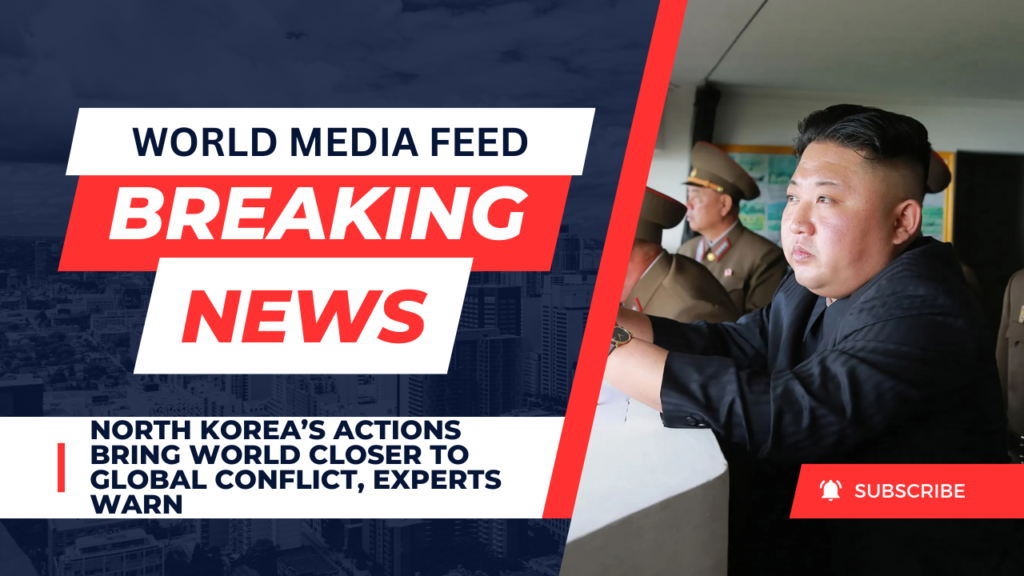
North Korea’s Actions Bring World Closer to Global Conflict, Experts Warn
In a move raising alarm worldwide, North Korea’s recent military actions have been described by experts as edging the world closer to a potential global conflict. This escalation includes provocative missile tests and rhetoric that has heightened tensions with several global powers, particularly the United States, South Korea, and Japan, as well as concern from NATO allies.
Reports from various intelligence agencies indicate that North Korea has been intensifying both the frequency and range of its missile tests, including possible simulations of nuclear capabilities. This rapid escalation has sent shockwaves through the international community, with world leaders condemning the actions as destabilizing and calling for urgent diplomatic intervention.
North Korean state media has responded with assertive statements, defending its actions as necessary for national security in response to what it describes as “hostile” U.S. policies. Kim Jong-un, North Korea’s leader, has made bold statements claiming that his nation will not be deterred from expanding its nuclear arsenal, which it views as a necessary defense mechanism against perceived threats from the West and regional neighbors. Analysts believe this rhetoric signals a willingness to resist international pressure and increase military readiness.
The latest developments have prompted an emergency response from neighboring countries. South Korea has bolstered its military defenses, conducting joint exercises with the U.S. military to counter potential threats, and Japan has heightened its security protocols, including discussions of deploying more missile defense systems. The U.S. has responded by reaffirming its commitment to its allies in the region, signaling that it will support South Korea and Japan in maintaining regional stability.
International leaders, including officials from the United Nations, have issued warnings about the dangers of a potential arms race in East Asia. They argue that North Korea’s actions could encourage other nations to strengthen their nuclear capabilities, pushing the world closer to a dangerous threshold. U.N. Secretary-General António Guterres has called for immediate diplomatic engagement, stressing that “global peace hangs in the balance” and urging all parties to prioritize dialogue over escalation.
The situation has ignited debate over the best approach to curbing North Korea’s aggressive tactics. Some analysts argue that a tougher stance with increased sanctions is necessary to contain the threat, while others advocate for renewed diplomatic talks to reach a peaceful resolution. However, with North Korea showing no signs of slowing its military ambitions, the path forward remains fraught with challenges.
As nations around the world closely monitor these developments, there is growing concern that North Korea’s actions are pushing the global community toward a dangerous juncture. In the face of rising tensions, diplomatic solutions are urgently needed to prevent further escalation and ensure that the region—and the world—avoids the catastrophic consequences of potential global conflict.




